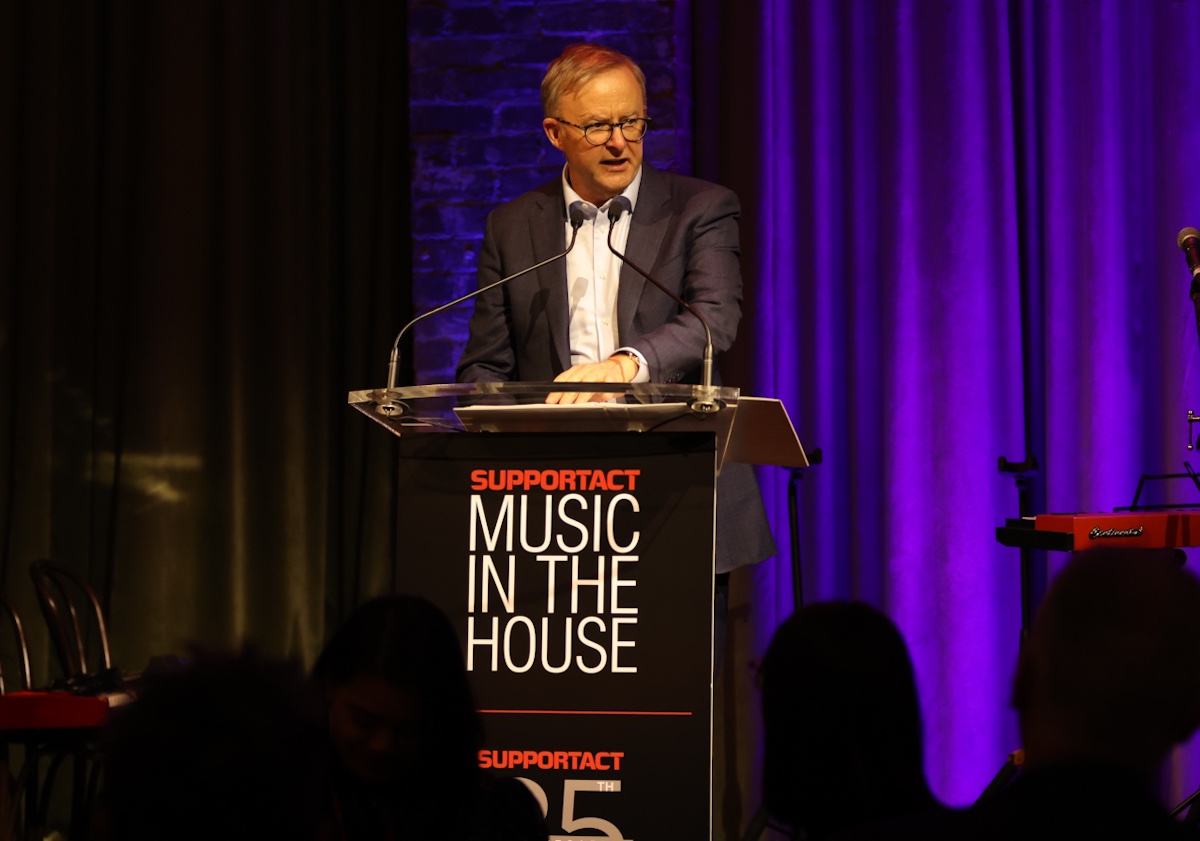Next Step For Labor’s National Cultural Policy Revealed

The Albanese Labor Government has now taken the next step with its National Cultural Policy before delivering it by end of the year.
Over the last two months, it held 14 town hall meetings around the country, getting input from musicians, dancers, writers, actors, directors, producers, painters and industry leaders.
The Government further received over 1,200 written submissions on the shape of the policy.
The consultation is now over.
Identifying key issues and themes is the next step, to help craft what will be a “comprehensive roadmap for Australia’s arts and culture sectors” for the decades ahead.
Federal Arts Minister Tony Burke has identified five pillars for the Policy: First Nations stories, diversity, prioritising artists, institutional support, and audience reach.
Each of these has its own reviews panel.
Representing artists are ARIA-winning musician and producer Michael Hohnen, singer-songwriter and interdisciplinary artist Jaguar Jonze and Matthew Chesher, Director of Legal and Policy for the Media, Entertainment and the Arts Alliance.
Hohnen, best know for his work with Gurrumul, told TMN it was too early to get into specifics.
“I’ve had the privilege of being immersed in a culturally rich sector and community here in the Northern Territory,” he said.
“Having had the experience of bringing some of that richness to the rest of the world, I look forward to what I can offer the Cultural Policy group.
“I believe this Minister has the capacity to understand the role arts and culture have in our society, and I appreciate the responsibility I’ve been given in helping to contribute to the policy.”
Jonze noted to TMN this was a symbolic change of approach and direction.
“After advocating for over two years about the sexual harassment, abuse and discrimination in this industry, with not much response from the industry leaders, it was such a refreshing honour to be contacted by the Arts Minister’s office directly,” she said.
“He had heard my AWMA award speech in Brisbane, gave strong acknowledgement, and took action to make sure I was invited to be on the panel.
“I am bringing the insight in issues I’ve been trying to highlight in our industry for so long, and will be pushing for commitment in establishing foundations and resources to begin reform and give protection for artists.”
In an interview with the Guardian in July, Burke said: “I want to make sure that national cultural policy speaks to the particular challenges in arts industries and within this policy there needs to be assurances of a safe workplace for women”, and cited Jonze speaking out against abusive producers and photographers as one example.
Those representing other panels include Yorta Yorta woman, soprano and composer Prof. Deborah Cheetham AO; Sydney Fringe CEO and Deputy Chair of the Night Time Industries Association Kerri Glascock; Indigenous Chair of Creative Industries at Queensland University of Technology Wesley Enoch AM; Arts Access Victoria CEO and Artistic Director Caroline Bowditch; and music producer Kate Ben-Tovim.
Live Performance Australia’s CEO Evelyn Richardson wants the National Cultural Policy to “articulate a bold, ambitious vision with a strategic framework for investment in culture and creativity for the next 10 years … “with clear strategic priorities and investment to rebuild the industry” and “to drive social interaction and wellbeing in our communities – at a time when it’s never been needed more.”
Specifically, the LPA says, the Policy needs to address and invest in stabilising the sector, rebuild skills and offset production costs which have increased by between 30 to 70 per cent.
The Theatre Network Australia (TNA) called for the arts to be recognised as a profession, which would mean Centrelink would acknowledge it as “seeking employment” and the adoption of an annual averaging process for artists’ fluctuating income as is done by the ATO.
Other submissions encouraged regular wages for artists and musicians, employers to be encouraged to put them onto payroll instead of contracts, so they’d receive superannuation and are protected under WorkCover.
Funding on-the-job leadership training would address the under-representation of First Nations people, people of colour and Deaf and Disabled people in leadership roles in the arts.
Associations also underlined the importance of First Nations musicians and arts getting their own peak association specific skills building that worked around their cultural practices.
The Interactive Games & Entertainment Association made three recommendations that could equally be applied to the music sector.
These were the Digital Games Tax Offset (DGTO) to generate investment, a significant game development fund, and a review of skilled migration to offset the current skills shortage.
“I’d love to think we could get to the point one day where we’re a net exporter of culture and stories and all the different forms of works of art,” Minister Burke told ABC Hobart in July.






























